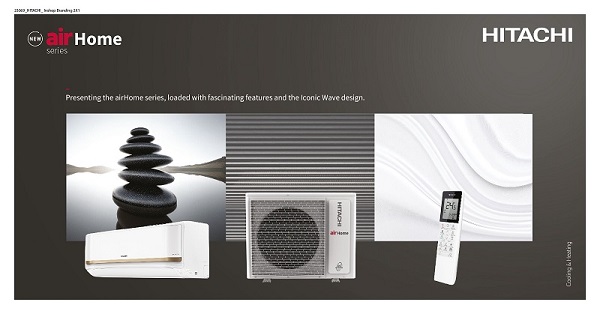
We usually have a long relationship with our air conditioners, so it is important that we choose the right unit according to our requirements and take good care of it to ensure same performance with increase lifespan. One also needs to know when it is time to change the air conditioner. Typically, the off-season is the best time to make replacements for air conditioners. The fall and spring months before extreme hot or cold temperatures hit. The best time to change your air conditioner also depends on several factors, including the age of your current unit, its overall efficiency, and the climate in your area. To upkeep the air conditioning quality in your living or office space, it is important to replace the air conditioner at the right time, says Mr. Sanjay Sudhakaran, Managing Director, India & South Asia, Johnson Controls-Hitachi Air Conditioning India Ltd.
- Age of the Unit: The average age of your air conditioner is usually 10 to 15 years. Air conditioner typically depends on a few factors such as the age of the unit, its overall performance, and the severity of the climate it operates in. Like any other electronic, regular maintenance improves not just the performance of the AC unit but also its life. So analyzing how old your AC is and its usage one needs to determine if it is time to replace it. Air conditioners tend to lose efficiency as they age, leading to higher energy bills and more frequent repairs, so it is recommended to install the latest technology and optimal indoor air conditioning experience after every 7 years to reduce energy bills.
- Mediocre Performance: When the air conditioner starts to demand frequent repairs and frequent breakdowns, it is time to change your air conditioner. If your air conditioner is struggling to keep your home cool or is making strange noises, it may be time to replace it. A poorly functioning air conditioning unit would not only result in bad performance – poor cooling but will also be a burden on electricity consumption. A well-running energy-efficient air conditioning unit is the way to go.
- Moisture and leakage – While it is normal to have condensation around your air conditioner, excessive leakage means there is a larger problem. If you see large pools of water or notice a refrigerant leak, there might be a serious problem with your AC unit. Leaking of coolant can also pose a health risk to the user. An old or damaged air conditioner can be a safety hazard, posing a risk of fire or other dangerous conditions.
- Climate conditions: If you live in a region with extreme temperatures or high humidity, you may need to replace your air conditioner more frequently. These conditions can put additional strain on the unit, leading to a shorter lifespan.
- Foul smell and Strange Noises: If your air conditioner is struggling to keep your home cool or is making strange noises, a smokey or burning smell, it may be time to replace it. An air conditioner that isn’t performing up to par is often an indicator of some issue.
- High Energy Bills: If your energy bills are overly high, it could have something to do with your air conditioner that is simply working too hard to get the job done. Replacing an old air conditioner with a new, energy-efficient model can help lower your energy bills and reduce the cost of cooling your home. This can be especially important during the summer months when energy usage and costs tend to be higher.
Overall, replacing your air conditioner during the summer months can provide improved comfort, safety, and cost savings. Your air conditioner should maintain a comfortable indoor environment and good air quality. When you are choosing, a new air conditioner apart from looking for the latest technology – a feature-loaded unit it is advisable to choose one, which is energy efficient and eco-friendly.














